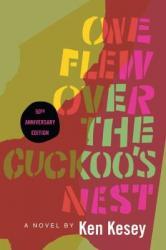
As one of the few films in American history to win the “big 5” Academy
Awards (which are Best Picture, Director, Actor, Actress, and Screenplay), I
was interested in the book that helped One Flew Over the Cuckoo’s Nest
attain its award-worthy status. I figured that if such a book could provide
such great content to win awards as a movie, it would certainly have artistic
merit in its own right. After all, many people posit that a book is better
than the movie it is made out of. I wanted to make sure that, at the very
least, it wasn’t any worse than the movie.
Perhaps the largest difference between the two versions of this story (I’m
not going to go into the live-theatre version, since I haven’t seen it), is
that the book has a very interesting narrator in the character of “Chief”
Bromden, whereas the film merely uses the camera to tell the story. Because
we get a glimpse into the mind of the deaf mute giant, he becomes not only a
subjective observer of the situation around him but also a vivid example of
what mental illness feels like. Instead of just focusing on the ways Randle
McMurphy bucks the stringent hospital system, we also get a sense of how
reality is filtered through a disabled mind.
As is usually the case with movie versions, I noticed a lot more content and
characters in the book version because it was likely these extraneous
elements were removed from the film for content and run-time issues. Still, I
wonder if the film would have had more of an impact on educating audiences
about mental illness if it included some of the Chief’s unique
observations. Either way, both the film and the book are excellent pieces of
art, even if it may be a little difficult to swallow at times that these
mental hospital practices have only recently been changed for the better.
An excellent book that spawned an excellent movie, I give One Flew Over the
Cuckoo’s Nest 4.5 stars out of 5.
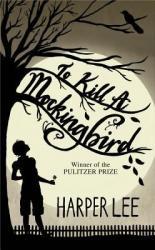
To Kill a Mockingbird shows us that growing up can not always be as easy as it seems. Especially when you live in Maycomb, Alabama, and your father is a lawyer defending a black man. Scout grows up not knowing much about the real world it is not until the trial that turns the whole town upside down that she really discovers how the South is really run. I love how relatable the characters are to teenagers like us today. I love how simple the story line is and the literature is beautiful. It tells you simply how things should be, it states things blatantly through Scout's eyes. The only thing I did not like about the book is that at some points it was hard to follow the story line. Although the story is very simple it got more complex when reading further. I chose this book because I had heard from many people that this was an incredible book and decided to see for myself. The book itself did surprise me as it did have a rather twist ending that was rather unpredictable. The characters were extremely relatable, I could see that in certain situations I would have acted similarly. I would say that it is definitely one of the best book I have read this year or even ever for multiple reasons. It can relate to old and young and describes an issue that still exists today.
Reviewer Grade: 9
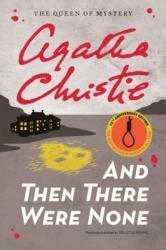
I often have a hard time with mysteries, but And Then There Were None was classic, suspenseful and just plain enjoyable. The audiobook version was especially entertaining, perhaps because the original story was written as a play under an alternate (and controversial) title. The characters feel like they were the predecessors to the characters found in the game Clue. They are equally sinister and sympathetic. I am particularly intrigued with the connecting reason all of them have been brought to the island and the psychological effects of that reason. To the very end Agatha Christie teases your deductive reasoning skills. You always feel like you are on the cusp of finding out who the killer is, and then you're wrong! I was completely at a loss by the end. Thanks goodness for the epilogue. This is a timeless mystery classic.
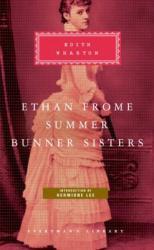
Ethan Frome by Edith Wharton is a tragic love story between a poor miller with an ailing wife and his wife's cousin. Ethan Frome was a poor sawmill owner who got the mill from his father after he and his mother died.
While his parents were on their death bed a girl named Zeena came to help take care of them while Ethan ran the mill. Zeena caught his parents sickness and also fell ill. Ethan did not abandon her, instead, he married her. Not long after their marriage Mattie, Zeena's cousin, came to stay with them after her father death. Mattie and Ethan fell in love though they could not be together because of Zeena. Will Ethan and Mattie ever be together?
I would rate this book a 4 out of 5 because it is a extremely well written classic, though it is kind of slow and very depressing. I would recommend this book to people who like classic romance novels. Grade: 8
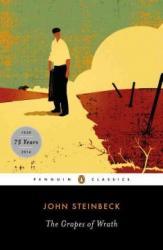
Many readers are immediately turned off by the immense depth and length of this classic (450+ pages). However, within the hundreds of pages, Steinbeck is able to create a realistic world with dynamic characters and an immersive story line. The book takes place during the Great Depression era, and the story follows the Joad family as they travel to California after losing their family farm. The story begins with the main character, Tom Joad, returning home from his time in prison. He quickly finds out that the Joad family farm has been repossessed, partly due to the Dust Bowl, and the entire family must travel to California in search of work. Along the way, the family meets and interacts with many characters facing the same difficulties of the Great Depression. Throughout the book, we see the hardships faced by these characters, which accurately correspond to the struggles of those during the 1930's. As an avid history nerd, I found myself quite intrigued by the story, since I was able to feel more connected to this tragic time in American history. Overall, I greatly enjoyed reading this book, and would strongly recommend it to someone who has an interest in history and enough free time to tackle this classic title.
Reviewer Grade: 11
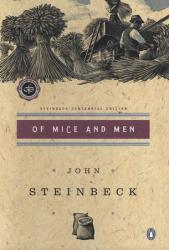
It had be a while since I first read it, but I found this book just as powerful as I did the first time, though perhaps for different reasons. Lenny's psychotic break was lost on me the first time, but now I was so disturbed I found myself reading those passages as fast as possible so I didn't have to linger on his pain and suffering. After all, how else could he react to what he had done? All he could do was punish himself the only way he knew how: Criticism from those important to him. So heart-wrenching. Meanwhile, George did what he had to do, but his spirit is broken as a result. A stark exploration of friendship and loneliness.
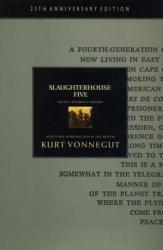
"So it goes..."
You may be thinking that based on the title it is the fifth book in a series of horror novels, but I assure you that it is not. Slaughterhouse-Five is a very thought provoking and poignant anti-war novel that has elements of science fiction, including 4th dimensional time travel and aliens. It’s a nonlinear story that follows a man named Billy Pilgrim as he travels throughout different moments in his life, weaving back and forth through differing time periods. He travels from his time as a chaplain’s assistant in World War II to his normal life with his wife and children to being an exhibit in an alien zoo on the planet Tralfamadore.
By becoming “unstuck in time”, as Billy puts it, he is able to relive these moments in his life and reflect upon them more deeply. This book is one of the best representations of 4th dimensional time travel that I've come across, and if you ever struggle to grasp the concept of time as the 4th dimension, as I do from time to time, then this book will certainly help create a better understanding of it. The book centers around Billy Pilgrim’s experiences during the war and all of the atrocities that he has seen, culminating at the end with the Bombing of Dresden, a moment which influences the rest of his life.
By being told out of chronological order, the structure of the book drives the importance and impact of the moment rather than just describing what happens next and it creates a sort of puzzle that the reader must put together. It is full of satire, wit, and black humor that is vintage Vonnegut and is one of the strangest meditations on war and humanity. If you want an extremely thoughtful book that challenges your perspective, then I highly recommend Slaughterhouse-Five by Kurt Vonnegut.
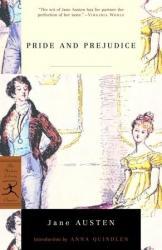
Reader beware, this is my favorite book. This is probably the fifth or sixth time I've read it. It's observant, subtle, and cleverly written. I come away with something new every time I read it. This time I felt for Elizabeth upon coming to the realization that her father was greatly to blame for the shortcomings of her three younger sisters. Oh, and Mr. Darcy's subtle devotion to her was more apparent to me this time around. It's easy to imagine the BBC version and characters while reading, but this book - like most books - is more richly constructed than the mini-series.
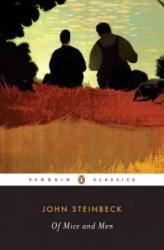
Two men, George and Lennie, wander aimlessly throughout the West Coast of the United States during the Great Depression, looking for any kind of job.
Lennie is a large, strong, migrant worker who, unfortunately, has a mental disability. Whereas George is a skinny, quick-witted man who cares for Lennie. Lennie’s mental disability and his uncontrollable strength causes the two of them to lose every job they get and get driven out of town. George does everything he can to keep Lennie out of trouble, partly because he promised Lennie’s Aunt and partly because he cares for Lennie; and Lennie tries to stay out of trouble, for their hopes of owning their own farms drives both of their motivations. Finally, they are able to find work on a small ranch in Soledad, California and actually make friends with many of the workers. Their dream of accumulating enough money to own a ranch is close, but Lennie’s disability could cause them to lose even this job.
Reviewer Grade: 10
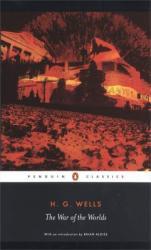
At only a smidgen under two-hundred pages, this book appeared to be a concise and quick read. Surprisingly, my experience was quite the opposite. The War of The Worlds presents a typical scenario that many novels have sadly claimed. The initial third is gripping and chocked full of descriptors and entertainment; the second third is nearly pointless to the main plot; the concluding third wraps the story up, leaving enough aspects unresolved for the imagination to expand upon, but doesn't carry on the initial third's promise. Thus, leaving the reader confused and with a feeling of wasted time.
Initial Third:
After reading the beginning chapters a sense of urgency becomes the overlying theme. Peril soon engulfs the novel's setting as its characters realize the grave situation. The Author takes his time here by writing pages of description to meticulously set the scene. The story progresses to a small climax at the end of this third, which casts a shadow of high expectation on the other two thirds. This initial third is a marvel of a opener that brings honor to the class of classic English-literature.
Second Third:
If paper could speak to its reader it'd ask that they'd grip their new-found excitement and trudge through the muck. The majority of this third's viewpoint comes from that of a flat secondary-character with little importance to the story. This characters presence only delayed the objectives that the first chapter created. Their travels were hectic; slightly smile inducing at times. Taking this character shift seriously was difficult as the pages grew thinner and crucial answers were yet to be disclosed. The author even goes as far as giving a figurative apology for sidetracking the reader at this third's close; H. G. Wells' canny sense of humor makes an unexpected appearance here.
Concluding Third:
After hope for the story as-a-whole was drained, Wells restored the glorious successes of the initial third, but not fully. Excitement and intensity were brought back as the conclusion drew nearer. The story abruptly shifted to the round, main-character, again; swapping character who're in different settings is usually abrupt, so this isn't a true issue. This character goes on to see the conclusion, which wraps up most of the events and questions that the previous content created.
My Take:
I didn't find this novel to be terrible or great. It proved to me that it's a mediocre work glossed with wild literary technique and vocabulary. Wells' persistence use of over description dimmed the natural flow and appeal of his writing. There's little reason to use half a page or more to describe minute details. It would have been better if he spent the time to detail the larger picture, rather than tiny scenes. Character development was superb at first, but fell flat due to the second third's character shift. If the second third was omitted in its entirety and, then rewritten without the secondary-character's perspective the novel would be vastly improved. Wells wasn't an illiterate fellow with corn for brains. His derailing of the story added multiple perspectives and was most likely an attempt to add another dynamic. The incessant over-descripting showcased his incredible vocabulary while portraying him as an over confident writer. Paying closer attention to the plot and character development will lead to a better story than any amount of impressive vocabulary ever could. It's clear that H. G. Wells is a gifted and skilled writer, but this certainly isn't a jewel.
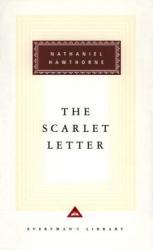
A cultural classic, The Scarlet Letter by Nathaniel Hawthorne
follows the story of a young woman named Hester, who is charged with adultery and punished in the Puritan town of Boston in 1642. The terminology and language used in this book is very old so it may be difficult for readers to interpret the plot or even the text, I know it was for me. The plot is somewhat dull, as it follows the life of Hester who has committed the sin of adultery with a man in the town, and when her husband, Roger Chillingworth, comes back for her, he is determined to find the man and seek revenge. After her punishment, Hester is banished and forced to live on the outskirts of town. With the aid of the minister Dimmesdale, Hester tries to live peacefully with her daughter, Pearl, but will Chillingsworth thwart their plans and get his revenge on the man whom Hester refuses to reveal? I read this book for my AP Lang class and the beginning was very confusing. This novel is very difficult to follow and I wouldn’t recommend it to many people other than those who enjoy old and classic works, but overall the plot is one of a kind and teaches morals that are very significant.
Reviewer Grade: 11
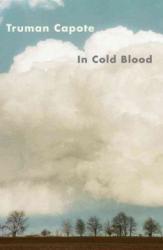
Holcomb, Kansas 1959, the Clutter family was brutally murdered and no one knew who or why they did it. Truman Capote wrote this book as a novel, with dialogue between the murderers and the family; although he was not there, he gathered as much information about the murder as possible and was able to turn it into a book instead of a document. Moving on, the story follows the life of the Clutter family before and after they were murdered, however it focuses more on Richard Hickock and Perry Smith, the murderers of the Clutters. In need of cash, and fast, Hickock calls his old jail friend Perry Smith and they decide to execute a robbery of the Clutter family, who they thought were rich. After invading the house and finding no cash, they dispose of the Clutters, rid of the clues, and escape the law for as long as they could. I love this book since it enables the reader to have a mystery going on in their head and also because murder was uncommon back in 1959, so it enables the reader to feel how it was to hear of a major crime, such as this, back then. I recommend this book to every reader out there, it was very well written and one of the most amazing “New Journalism” type of books, as Capote said.
Reviewer Grade: 11

I’ve always loved learning about the holocaust and people’s stories. Elie Wiesel's story is the best one I’ve heard yet. He puts so much emotion into his story and his writing and it makes you feel like you’re in the holocaust. Elie starts his story off by talking about his religion and the church he went to. His instructor, Moshe the Beadle had been gone for so long, and when he returned he had a story of a near death experience with the Nazi's. Of course, no one believed his “story” and they carried on with their lives as normal. One night they got real news that the Nazi's were coming the next morning and that’s when everything bad started happening.
All the walking, traveling, and suffering he went through was very interesting to read. My teacher read this book to the whole class in 8th grade and I instantly fell in love with it.
Reviewer Grade: 9
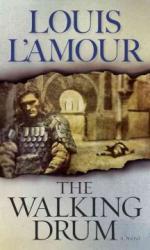
The Walking Drum by Louis L’Amour is the story of the twelfth
century adventurer Mathurin Kerbouchard and his journey to find and rescue his father who had been captured at sea. His journey takes him all across Europe and into the Muslim world, a world of culture and science that is much different than the squalid life of Europe. It is a lively story, full of exciting characters, vivid description of life in the Middle Ages, and daring exploits that climax at the infamous Valley of the Assassins. Throughout the book are many historical facts thrown in by Kerbouchard as he narrates his travels which I found interesting, but someone who is simply looking for an adventure book might find them tedious. I would definitely recommend this book to someone who loves history and travel, because it satisfied some of my own wanderlust with its vivid description of the splendors of an age long gone.
Reviewer Grade: 11
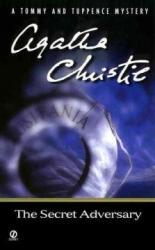
The Secret Adversary by Agatha Christie is a spine-tingling mix of
mystery, international intrigue, and spy thriller. It begins with the sinking of the Lusitania when a mysterious man gives a girl he does not even know a package with instructions not to let it fall into enemy hands. The story then moves forward four years to 1919 when a pair of friends, Tommy and Tuppence, set out to help a rich man find his long-missing cousin. Quickly, though, the pair are swept up in an intrigue far beyond what they could have ever imagined and with consequences that could change their entire world. Like most Agatha Christie mysteries, the culprit is kept a secret until the very end, which turns what might be a typical spy story into an engaging mystery.
Reviewer Grade: 10
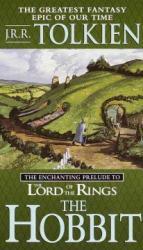
In The Hobbit, the prelude of The Lord of the Rings, the main character is a hobbit named Bilbo Baggins. He lived in a lovely hole carved into a hill and he lived a wonderful, luxurious life, with second breakfasts, and fun parties. That all changed when a mysterious wizard named Gandalf and a troupe of dwarves came into his house one morning. The dwarves told him of the horrible dragon named Smaug who had killed all the other dwarves and stolen their home. Now Bilbo must venture to the Misty Mountain, fighting goblins, evil wolves and spiders on the way to slay the dragon who terrorizes everything in it's path. Will he succeed or die on his perilous quest? Find out by reading this book. It is filled with creativity and cleverness. I would recommend it for anyone who liked Lord of the Rings. It is a great book.
Reviewer Grade: 8
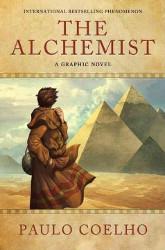
I was underwhelmed by the entire concept of the book. I felt as if it was poorly written and extremely sappy. The whole "find your personal legend" to me was a reach to be creative but went downhill. I admit, some parts of the book pulled me in but the plot never seemed to satisfy me 100%.The message in the story is to follow your own legacy but it also has a supernatural element that helps Santiago through his journey and it seems that if an individual wants to find his own worth and legacy, you need some supernatural, god-like force to help you along the way and not a lot of people like the idea of that. The book was reviewed as amazing and one of a kind but I think otherwise. The way the author tried to make the story deep, failed and it seems like a silly fable at the end of the day.
Reviewer Grade: 12
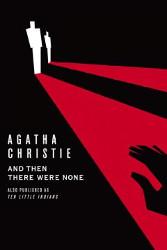
The name Agatha Christie is synonymous with unique and puzzling mysteries, but And Then There Were None is definitely one of her best. The plot is simple enough: ten people are invited to an island, stranded there, and then accused of a murder. And then one by one each person begins to die just like the people in the old nursery rhyme “Ten Little Soldier Boys.” However, the reader is kept in the dark as to who the murderer is until the very end, and the end is not at all what the reader might have expected. The plot moves along fairly quickly, but it doesn’t get confusing. The characters are fully sketched out which helps to make the story somewhat believable. The best thing about this book is that it is not at all cheesy; it is gripping and just frightening enough to make the reader want to finish the book before they turn out the lights at night.
Reviewer Grade: 11
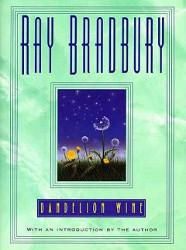
Dandelion Wine is a book about an entire town in Green Town, Illinois. It follows many of the different citizens, but focuses on the character development of Douglas Spalding. The book starts with him and his Grandfather making dandelion wine, as a tradition as the beginning of summer. I am reading this for school, and at first, I wasn't thrilled with it. It has no plot, but instead makes up for it with the mini stories throughout the book. Every chapter is new, and about a completely different citizen of Green Town. I was shocked with how the book had many different themes, most of them dealing with love and death, but most of all grief. Each chapter changed my perspective of the world just a little bit, so by the end I felt almost new. I was able to relate to Doug very much, along with other characters. This book hits the hard questions, and views the tragedies of life through only a boy's eyes. I found myself gasping at parts, not because of plot twists, but because of the complete shock of innocence vs tragedy. It made me view life in a completely different way. This has defiantly made my top 5, maybe even 3, book list.
Reviewer Grade: 10
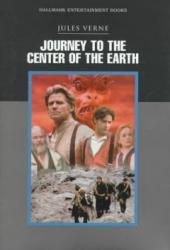
Journey To The Center Of The Earth is a wonderful book. In it, the main characters Axel and his uncle find a mysterious message in a book saying that if you descend into the crater of Sneffels before the kalends of July, you will find a passage to the center of the earth. Putting aside all hesitations, they begin their journey and explore the depths of the earth.
Will their journey succeed or will they die in vain? Find out by reading this book. You will not be disappointed! The only bad part is that it's a bit unrealistic. Overall, this is a great book.
Reviewer Grade: 8



 Ruth Holley Library will be temporarily closed for approximately one week starting Mon., Dec. 2 to complete roof repairs.
Ruth Holley Library will be temporarily closed for approximately one week starting Mon., Dec. 2 to complete roof repairs.